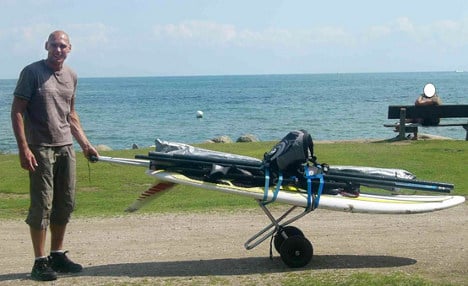The pictures of the trio from the eastern German town of Zwickau show the neo-Nazi murderers relaxing on holiday at the beach, carrying surfboards, wearing sunglasses, sitting on a boat, and smiling in a campervan similar to the one that two of them later committed suicide in.
See the NSU’s holiday snaps here
The photos of Uwe Böhnhardt, Uwe Mundlos and Beate Zschäpe were released as part of police investigations into the terrorists, who are thought to have killed nine people of immigrant descent and a policewoman between 2000 and 2007.
“The federal state prosecutors and the federal police force are once again appealing to the public to help in the further investigation of the crimes committed by the far-right terrorist group NSU,” the police said in a statement on its website.
Police have already found a surfboard and six mountain bikes thought to have been used by the NSU. “Where did these people spend time, or where were they noticed?” the police statement said. “And who can offer information about the surfboard?”
The NSU are also thought to have been behind several bank robberies, two arson attacks, and a 2004 nail-bomb attack.
Böhnhardt and Mundlos were found dead in a campervan in November 2011 after having been surrounded by police following a botched bank robbery. Zschäpe gave herself up to police a few days later.
The police said the holiday snaps were all taken between 2004 and 2009, except two, which were taken in the early 1990s.
The Local/bk



 Please whitelist us to continue reading.
Please whitelist us to continue reading.
Member comments